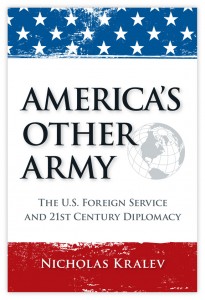The evening news bulletin on Bulgarian National Radio began with a familiar item: Another meeting of the Politburo of the Communist Party’s Central Committee. Then the announcer uttered a sentence that left Bulgarians stunned: The country’s dictator of 35 years, Todor Zhivkov, had been “relieved of his duties.”
It was Nov. 10, 1989. I was only 15 but understood that what had happened was not just a simple personnel change in the government of the Soviet Union’s most trusted satellite. Within minutes — though a day late — I learned about the fall of the Berlin Wall. Those events changed my life more fundamentally than anything else I have experienced before or since.
Up to that point, I wanted to be a theater director, but now the theater was in the streets. At daily demonstrations and processions, hundreds of thousands of people expressed themselves freely for the first time in their lives. Not everything was joyful — empty store shelves and snaking lines became a common occurrence. Hoping to help others understand these momentous events, I became a journalist and published my first news story at 18. A year later, while a university student, I became a reporter for the Bulgarian National Television evening news.
As a TV reporter, I had my first encounters with American diplomats at the U.S. Embassy in Bulgaria. From them, and through my studies, I began learning about the role American diplomacy had played in ending the Cold War — and how it was helping the former communist countries of Central and Eastern Europe to transition to democracy and market economy. Eventually, my interest in diplomacy and international affairs led me to the Kennedy School of Government at Harvard, and to being a correspondent for the Financial Times and The Washington Times.
However, after a couple of years of covering the U.S. State Department and traveling around the world with the secretary of state, I realized that those opportunities provided only momentary and somewhat superficial glimpses into what diplomacy is about. Below the surface, I wanted to know what it is really like to be an American diplomat in the 21st century, especially in a post-9/11 world. What do those people do every day in hundreds of embassies and consulates, when they do not host visiting dignitaries or participate in high-stakes negotiations? On a human level, how does the Foreign Service lifestyle affect its members and their families?
With these questions in mind, in 2003, I set out to write a series of articles about the Foreign Service in The Washington Times. As I started visiting overseas posts and talking to dozens of the service’s members, more questions arose: How does the work of American diplomats fit into the big picture of U.S. foreign policy? How exactly does it serve the national interest? Do they have sufficient resources to carry out their mission? What kind of skills is the State Department looking for when selecting America’s diplomats? How does it train them?
My new book, “America’s Other Army: The U.S. Foreign Service and 21st Century Diplomacy,” is an attempt to answer these questions. It’s the product of nine years of research, five around-the-world trips and several shorter ones, visits to over 50 embassies and consulates, and interviews with some 600 diplomats.
The paramount question that guided me throughout this effort was this: Why should we care about diplomacy? I was looking for a more pragmatic and relatable answer than the well-known saying, “When diplomacy fails, war follows.” My short answer is this: American diplomacy has a real and lasting impact on millions of people across the globe every day. I have seen that impact with my own eyes. In fact, I have been a beneficiary of it — it set me off on a journey that resulted in my moving to the United States, becoming an American citizen and spending a decade traveling with Madeleine Albright, Colin Powell, Condoleezza Rice and Hillary Clinton.
Moreover, U.S. diplomacy affects the everyday lives of Americans, including their safety and security, their ability to travel and communicate with people in other countries, their employment and overall prosperity. Yet, it is astonishing how little we know about our diplomats, and about their skills and work. I thought I knew more than most people — but those old perceptions went out the window during my very first research trip.
So forget everything you think you know about diplomacy, and enjoy the Foreign Service’s story.
Related stories:
Who qualifies to be a U.S. ambassador?
The greatest understated U.S. diplomat
Why are political ambassadors tolerated?
Career diplomats protest Obama appointments
Diplomats in the news for wrong reasons

